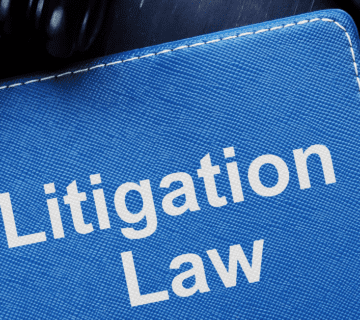Published on January 26th, 2021

The NDAA (National Defense Authorization Act) passed in December 2020 contains a buried provision which bans anonymous company ownership by requiring every company to file with the US Treasury a statement identifying the beneficial human owners. This will override state corporate privacy laws.
I think it will have a significant effect, not only on privacy, but on litigation, as I’ll explain below.
There are many legitimate reasons why a person would want to keep ownership of a private company confidential. But, the government wants to know who really owns each company and, through them, each property, since LLCs are a common way to own property.
The new law will require regulations to be issued within one year. At that point new companies will have to begin reporting their ownership to the government. Then there will a two-year period for existing companies to report their ownership.
As I noted, there are plenty of legitimate reasons to keep your personal assets and business private. The vast majority who do so are not avoiding taxes and are not laundering money or funding terrorists. But that’s the kind of disparaging marketing spin used by advocates of the law to gain public acceptance of the new law. In a pitch piece for the new law, Vox opens the article by writing, “If you’re a corrupt foreign official or drug trafficker, there’s a pretty easy way to protect your illicit cash: create an anonymous shell company.” They didn’t start with, “If you are an honest hardworking American who wants the government out of your business, you are now out of luck.” And, you can imagine the rest of the spin, including the author saying that she imagined that if she was going to start a business it would be obvious that she would have to give the government this information. All my clients, real-life legitimate business owners, want to provide as little information to the government as possible.
This kind of spin makes it uncomfortable for most to oppose the law, because ‘if you have nothing to hide, why are you against transparency?’ Security forces use it to seek unfettered access to your information, complaining that prior expansions of their access are not sufficient. The argument wears down opponents who then capitulate and come around to supporting the legislation to appear reasonable and patriotic, as happened with this law. That switch of support by the big lobby organizations makes continued opposition look unreasonable. The real answer is that this is the manipulative messaging of those who want to have greater government oversight and tracking of everything a person does and writes. Agreement to this increase of control only works if (a) there is some dangerous threat to justify it, here a claimed national security threat, and (b) this law is therefore for our safety (Für ihre sicherheit), and (c) some way to paint the opponents as part of, perpetuating or sheltering the threat and opposed to our safety.
So, what is the effect on civil litigation? Until now it is very cumbersome for litigants to discover who owns their opponents. Lawyers have to serve discovery requests on each layer of entities. There was no one document that would reveal the information. But now there will be. Even though the litigants cannot obtain the document from the US Treasury, they can simply serve a discovery demand on their opponent, “Produce US Treasury Form XYZ: Identification of Beneficial Owners.”
Now, this is a big deal for family offices and investors because they want to be able to invest in real estate for example, but don’t want their names dragged into the courts and media based on the disclosure that they are a beneficial owner of a property. Their ownership is usually irrelevant to the litigation. This will give plaintiffs an advantage in the pressuring effects of litigation and will require defendants to rethink their entity structures.
For those that still want privacy, trusts and partnership are not covered by the new law so these forms of ownership can still be used. However, expect the government and the academics, lobbyists and media who support greater government knowledge of your life, to next claim that the law needs to be extended to cover that, too. The bill already requires the GAO and Treasury to study that expansion. I expect that their studies will soon “find” that trusts and partnerships are a risk requiring further expansion of government access to your information.
We help our clients with asset protection for all legitimate reasons. Email or call to set up a consultation or book one right here.


